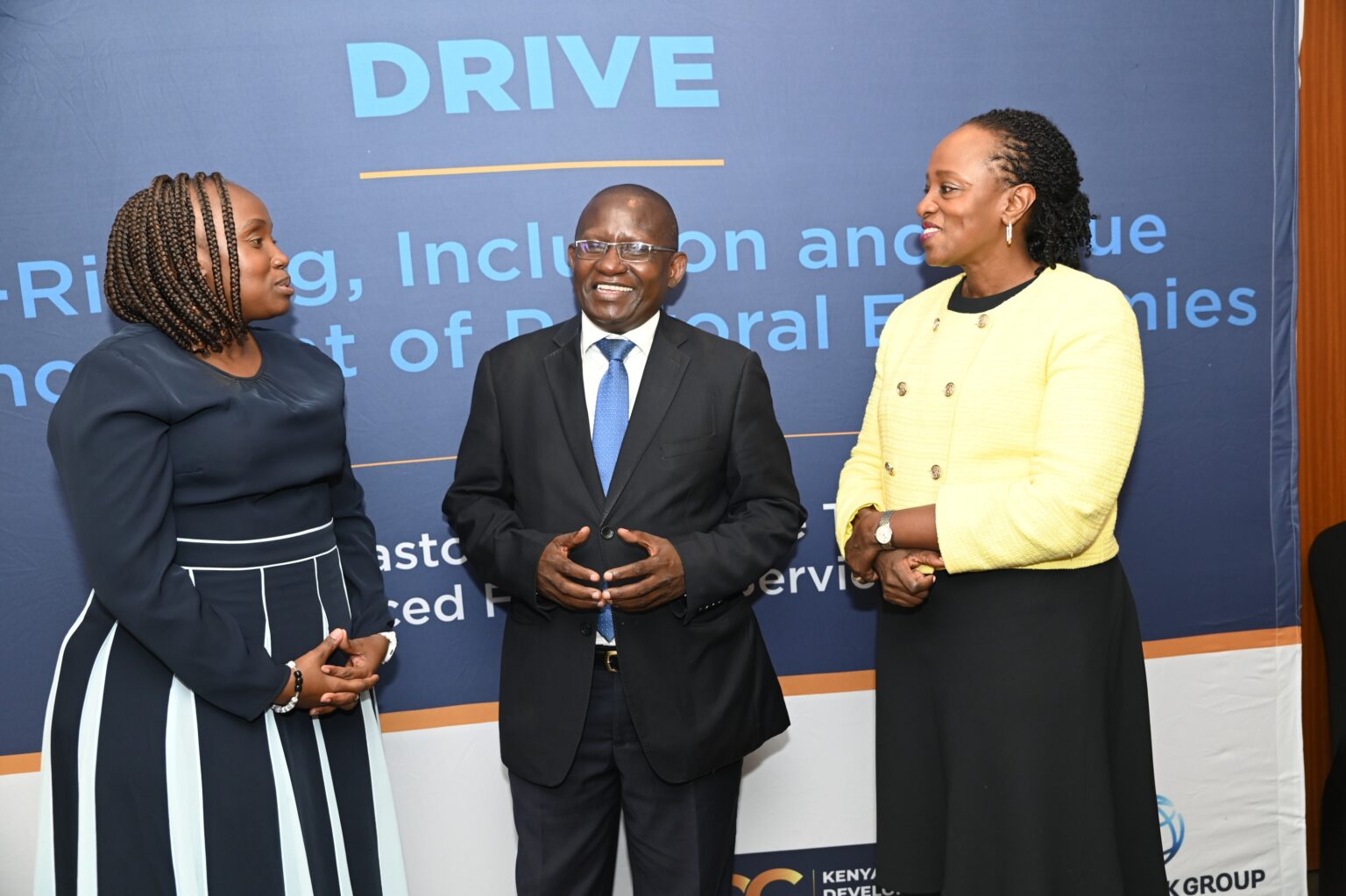- The Kenyan Government has partnered with ZEP-RE (PTA Reinsurance Company), Kenya Development Corporation (KDC), and the World Bank, to launch the De-Risking, Inclusion, and Value Enhancement of pastoral economies (DRIVE) project.
- Over 250,000 households are expected to benefit from the World Bank-backed project representing 1.6 million pastoralists and their dependents across Kenya, Ethiopia, Somalia, and Djibouti over a five-year period.
- DRIVE project seeks to de-risk pastoral systems through insurance, savings, and financial education while de-risking private sector investments that provide reliable markets to millions of pastoralists including women and youth.
In drought-stricken Kenya, millions of dead livestock tell of lost livelihoods as the worst dry spell in a half-century sweeps across the Horn of Africa. Latest data estimates that over 2.6 heads of livestock—cattle, goats and even camels, erstwhile “ships of the desert”—have died due to lack of water and pasture following failed rains, piling huge pressure on pastoral families robbed of their livelihoods.
The awful experience and massive losses could, however, be a thing of the past following a move by Kenya Government in partnership partnered with ZEP-RE (PTA Reinsurance Company), the Kenya Development Corporation (KDC) and the World Bank Group (WBG), to roll out the De-Risking, Inclusion and Value Enhancement (DRIVE) project that seeks to avert damages.
By de-risking pastoralists business through financial services that cushion them from losses attributable to the negative impact of climate change, DRIVE is expected to provide drought index insurance, savings, digital accounts and financial education, besides enhancing the value chain by de-risking private sector investments that provide reliable markets to pastoralists.
Mr Harry Kimtai, the Principal Secretary Development for Livestock said the project would greatly improve climate resilience of pastoral communities, mitigate against losses, strengthen the trade in livestock, and strengthen inclusion of marginalized and vulnerable groups such as women and youth.
“The DRIVE project is a critical step towards the sustainable development of pastoralist communities in Kenya. By providing them with the necessary support and resources. The project will help increase their resilience and enhance their economic participation while promoting a more sustainable and inclusive economic development model in the country,” Kimtai said.
As part of the Horn of Africa Initiative, the DRIVE project will build the resilience of pastoral communities in Kenya, Ethiopia, Somalia and Djibouti. Over 250,000 households are expected to benefit from the project representing 1.6 million pastoralists and their dependents across the four countries over a five-year period.
Read: Why Kenya’s Central Bank governor wants to meet US Secretary of Treasury
In Kenya, over 150,000 pastoralists are expected to benefit from the project across the arid and semi-arid Lands (ASALs) where livestock keeping as been hit hard by effects of the worst drought in 40 years. The project is also expected to create markets around the livestock value chain, enhance regional cooperation and peacebuilding, climate mitigation, and help close the gender gap in access to financial services.
“Today marks a pivotal moment in Kenya’s development journey as we launch the DRIVE project. Our joint commitment to unlocking the full potential of pastoral economies is unwavering, and DRIVE is a big step towards achieving sustainable and inclusive development. We are confident that the project will drive positive change, creating new opportunities, empowering communities, and fostering resilient, thriving economies of the ASAL regions,” KDC Acting Director-General Norah Ratemo said.
Pastoralists in 21 ASAL counties in Kenya including Turkana, Marsabit, Mandera, Wajir, Garissa, Tana River, Isiolo, Samburu, Meru, Tharaka Nithi, Baringo, West Pokot, Narok, Laikipia, Kajiado, Makueni, Kitui, Lamu, Taita Taveta, Kilifi and Kwale are set to benefit from DRIVE project.
ASAL counties in Kenya provide rich grazing lands where pastoralists keep roughly 70 per cent of the country’s livestock herds, which are estimated at about 9.7 million beef cattle, 9.6 million goats, 8.3 million sheep and 800,000 camels data from the Livestock Ministry shows.
In Kenya, the project has two components. The first will involve the de-risking of pastoral production through a package of financial services, including drought index insurance, savings for resilience, digital accounts and financial education and awareness creation that protect the pastoralists against recurring drought shocks.
The regional implementing agent ZEP-RE (PTA Reinsurance Company) will be delivering these services through collaboration with the government, development partners and private sector companies. The regional management of this component helps mobilize the private sector and create the scale necessary to transfer the risk of drought to the international insurance market.
“ZEP-RE is particularly keen to ensure equity empowerment of pastoral communities by focusing on innovating how women, youth, and people with disability would also access financial services and linkages to markets and trade-related opportunities under component two. We look forward to scaling financial packages that support the resilience of the communities against various shocks,” Hope Murera, Managing Director and CEO, ZEP-RE (PTA Reinsurance Company) said.
The second component, which has a budget of $65 million, aims to ensure that pastoralists get better value for their livestock by among others upgrading standards and equipment to check the conformity of livestock and livestock products to international standards so that Kenya can export processed meat products.
Processing of meat is billed to enhance regional livestock trade, and de-risk private investment in the animal value chain that benefit pastoralists with reliable contracts.
The current drought gripping the Horn of Africa underscores the need for initiatives such as pre-arranged financing instruments that help put money into pastoralists’ pockets and avert losses.
“The project expands access of pastoralists to a package of financial services, so that they may receive insurance payouts in their accounts in case of severe drought and use their savings in case of moderate shocks,” said Keith Hansen, World Bank Country Director.
“It aims to provide pastoralists with reliable livestock markets where they get better value for their livestock by selling more regularly and directly to the livestock processors and exporters. This financial protection against drought frees pastoralists from keeping many animals to protect themselves against drought shocks.

